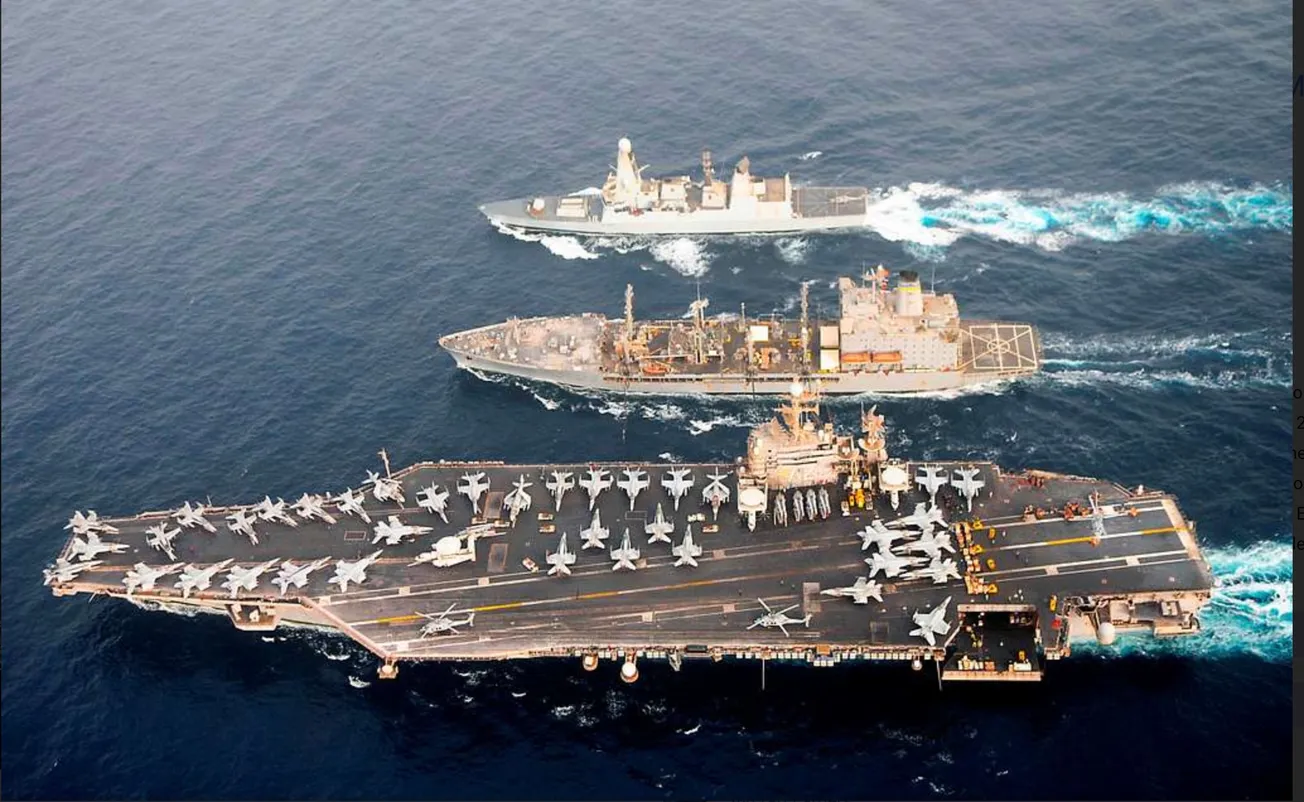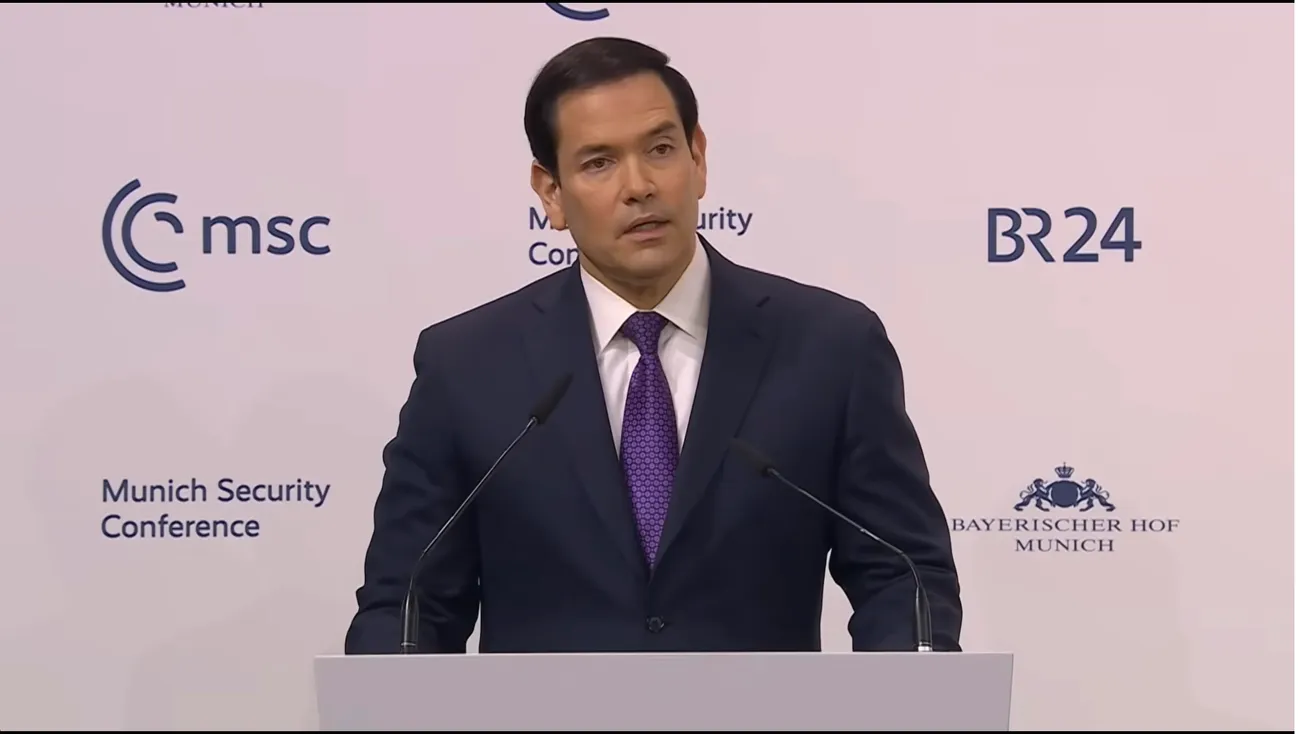The International Peace Coalition, in its meeting No. 55 on June 21, heard and adopted a resolution, proposed as a response to the June 14 peace proposal regarding the Ukraine conflict offered by Vladimir Putin. The resolution was presented by Joachim Bonatz, Vice President of the East German Board of Trustees of Associations (Ostdeutsches Kuratorium von Verbänden (OKV) e.V.) and was called “Declaration of the Presidium of the East German Board of Trustees of Associations on President Putin’s Peace Initiative.” It reads, in part:
“We welcome the renewed peace initiative of the President of the Russian Federation Vladimir Putin, currently presented in his speech at the Russian Foreign Ministry on June 14, 2024. His peace proposals are based on the vote of the population of the four new regions as well as the multiple votes of the people of Crimea. They are also based on the facts on the battlefield….This peace initiative is based on the continuity of Russia’s desire for peace, which was openly documented to the world in the conclusion and attempted implementation of Minsk-2 as well as in the willingness to negotiate and the treaty that is therefore about to be concluded in spring 2022. Responses from the various sides reveal to the world who the aggressor is, who is constantly escalating, who is indifferent to countless human lives and also what intentions lie behind it.
“In view of the suffering caused by war and aggression and the danger of this conflict escalating into a Third World War, broad support for this initiative is an expression of the will of all rational people to survive….. Our contribution is to support the Russian President’s peace initiative in such a way that it gains a broad echo and helps reason to prevail in the interests of humanity. We call on everyone we can reach to do so.”
The same group had, more than a year earlier on March 27, 2023, held a Berlin conference, “Dialogue Instead of Weapons—Nonpartisan Action Against the War,” at which Helga Zepp-LaRouche, Schiller Institute and International Peace Coalition founder had spoken. The IPC, after an extensive discussion among over 250 virtual guests, and a re-reading of the entire Bonatz proposal, fully supported it. The deliberation that went on in that meeting, and the decision to act which followed, has set a new standard. The IPC, involving over 40 nations and consistently convened for 55 weeks, represents what should go on at the United Nations, in American state legislatures, and in other venues, to discover, command and re-produce the mental discipline of self-government, just as the original Continental Congress of the newly-formed United States was required to do. The reality of our current situation must be brought home, and the alternative, the Zepp LaRouche Ten Principles for a New International Strategic and Development Architecture must be adopted now.
For the nation of Russia (and the nation of China as well,) reflections on total war—war as an existential threat—occur in a context that should be understood, and appreciated. June 22, 1941 was a date that, as Franklin Delano Roosevelt would say five months later, on December 7, 1941, will live in world infamy. It was 83 years ago today that Adolf Hitler launched Operation Barbarossa, the invasion of the Soviet Union. Literally tens of millions of Russians—27 million in total—and millions of Germans would die over the ensuing three years and ten months. In the minds of those that reflect, as in the “Immortal Regiment” ceremonies held in Russia and other parts of the world, the present Ukraine debacle smells of something deeper than a geopolitical mistake, already costing more than a half-million lives, just as the systematic depopulation of Gaza should recall, in the callousness of its execution, something of a deeper, more ominously evil nature. The vacuous ruminations of the present trans-Atlantic bumper crop of latter-day political geniuses and “chicken hawks” offer no resemblance to what is actually occurring—and therefore no assurance that we are not slipping into a darkness, inch by inch, bit by bit, from which there is no return.
The announcement, as described by the Korean News Agency, of the just-signed June 19 “Treaty on Comprehensive Strategic Partnership between the D.P.R.K. (Democratic People’s Republic of Korea) and the Russian Federation,” the only such treaty Russia has with any nation in the world, was this: “In case a direct threat of armed invasion is created against any one of the two sides, the two sides shall immediately operate the channel of bilateral negotiations for the purpose of adjusting their stands at the request of any one side and discussing feasible practical measures to ensure mutual assistance for removing the prevailing threat.
“In case any one of the two sides is put in a state of war by an armed invasion from an individual state or several states, the other side shall provide military and other assistance with all means in its possession without delay in accordance with Article 51 of the UN Charter and the laws of the D.P.R.K. and the Russian Federation.”
The White House National Security Communications Advisor John Kirby tried to contend, with a straight face, “this agreement is also a sign of Russia’s desperation.”
Former CIA analyst Ray McGovern, a founding member of Veteran Intelligence Professionals for Sanity and of the International Peace Coalition, had something very different to say to the Friday meeting about this. “Wow! This came as a surprise to everyone. There is a mutual defense treaty now between Russia and North Korea. How many mutual defense treaties does Russia have? One, between Russia and North Korea. Mutual obligation to come to the aid of the other side, if the other side is attacked. That is big….
“We know, and Jake Sullivan, the National Security Advisor to the President, knows that Putin gave the North Koreans a very sophisticated ICBM (intercontinental ballistic missile) a couple of years ago. It’s not Russia’s most sophisticated one, but it’s the next one down. It can reach every inch of the United States; it has decoys, it has chaff galore. It can be guided into place, and most important, it’s mobile. To be mobile, you have to be solid fuel, it’s solid fuel. Has it been tested? Yes, it’s been tested twice. Now, what does that mean? That means that all this pulling of hair by the New York Times, Financial Times, and everybody—‘Oh, would Russia give sophisticated weaponry to North Korea in a strategic sense?’ Well, be the first to know, folks, they already have. So, what is Putin trying to do? Is he trying to steal the march strategically? He’s trying to deter, for God’s sake…. “
“Those that refuse to learn the lessons of history are doomed to repeat them,” it is said—but is thermonuclear World War Three repeatable? Perhaps, there are lessons of history that, not learned once, are never repeated, because no one survives, either to make the same mistake, or to tell the future what the doom was that had occurred. Ray McGovern had observed that “What we need to do, is realize that the problem is with us. We’ve identified the enemy: The enemy is us. The deal is out there. The deterrence is there. The only big fly in the ointment is the Presidential election here, other elections elsewhere, in Europe and elsewhere. We, the people, need to stand up, get the truth out, and make sure our politicians don’t bring us to the brink of nonexistence.”
After the extensive deliberation, a discussion for more than an hour, and the passage of the OKV measure, Helga Zepp-LaRouche proposed: “I think whatever you do in the next weeks and months is possibly decisive in making the resolution if mankind exists or not, because while there are periods in history when the individual can do very little, I think we are right now at one of these branching points, where the subjective factor is playing a very important role. So, the more mobilization and moral courage you can mobilize, that is really what you should concentrate on.”





